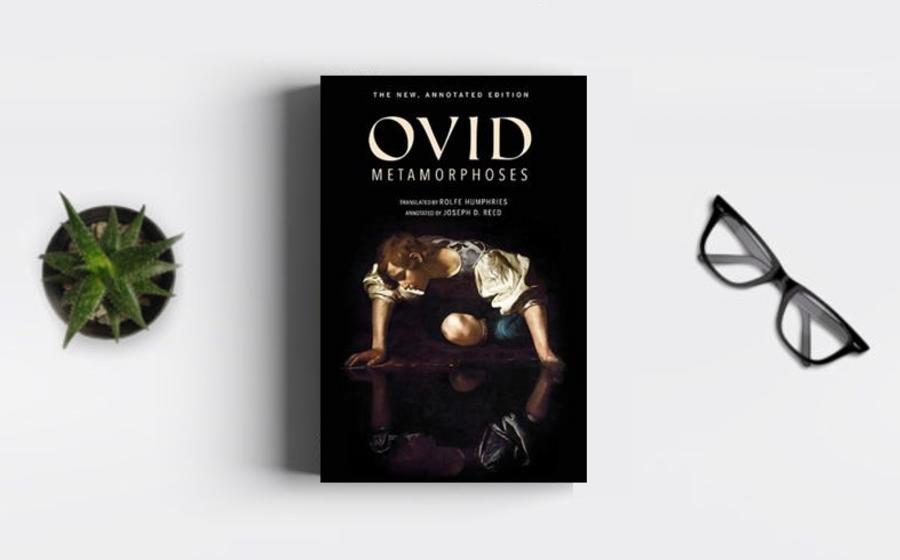"The Metamorphoses," a narrative poem by the ancient
Roman poet Ovid, stands as a monumental work that has
endured through the ages, transcending its classical
origins to become a timeless epic. Comprising fifteen
books, this epic poem weaves together a tapestry of
myths, legends, and stories from Greco-Roman mythology,
exploring themes of transformation, love, divine
intervention, and the inexorable passage of time. Ovid's
skillful narrative, rich in detail and imagination, has
contributed to the lasting impact of "The Metamorphoses"
on literature, art, and the understanding of the human
experience.
The epic opens with an invocation to
the gods and the transformative power of poetic
creation, setting the stage for the myriad stories that
follow. Each book of "The Metamorphoses" unfolds a
series of interconnected tales, linked by the theme of
metamorphosis, or transformation. The central motif of
change provides a unifying thread, guiding the reader
through a diverse array of myths that span the creation
of the world to the deification of Julius Caesar.
One of the enduring qualities of "The Metamorphoses"
lies in its expansive scope, encapsulating the entirety
of Greco-Roman mythology within its verses. Ovid
seamlessly integrates stories from various sources, both
well-known and obscure, creating a mosaic of myths that
reflects the multifaceted nature of the classical world.
The narrative encompasses the creation of the cosmos,
the exploits of gods and heroes, and the intricate
relationships between mortals and immortals.
A
key feature contributing to the time-tested nature of
"The Metamorphoses" is Ovid's distinctive storytelling
style. The poet's playful and witty narrative voice,
coupled with his keen observational skills, infuses the
myths with a human quality. Ovid bridges the gap between
the divine and the mortal, providing readers with
relatable characters and exploring the emotional
dimensions of their transformations. This accessibility
has allowed "The Metamorphoses" to resonate with
audiences across centuries, inviting readers to connect
with the universal themes embedded in the myths.
The theme of metamorphosis serves as a metaphor for the
fluidity of life and the inevitability of change. Ovid's
exploration of transformation extends beyond physical
alterations to encompass emotional, psychological, and
spiritual metamorphoses experienced by both gods and
mortals. The interplay of permanence and transience,
order and chaos, infuses the narrative with a timeless
quality, prompting readers to reflect on the nature of
existence and the human capacity for adaptation.
The enduring relevance of "The Metamorphoses" is evident
in its exploration of love and desire, themes that
transcend cultural and temporal boundaries. Ovid delves
into the complexities of romantic relationships,
portraying the joys and sorrows, victories and defeats
that characterize the human experience. The tales of
Daphne and Apollo, Pygmalion and Galatea, and countless
others explore the transformative power of love,
highlighting its ability to inspire creativity, provoke
longing, and drive individuals to both glorious heights
and tragic ends.
The exploration of divine
intervention and the interaction between gods and
mortals further contributes to the epic's enduring
appeal. Ovid portrays the capricious nature of the
Olympian deities, who wield their powers in
unpredictable ways, alternately helping and hindering
mortals. The narrative blurs the boundaries between the
divine and the human, emphasizing the interconnectedness
of the two realms. This divine involvement in mortal
affairs adds a layer of complexity to the tales,
prompting readers to contemplate the relationship
between the forces that govern the cosmos and the
choices made by individuals.
Ovid's artful use of
intertextuality, drawing on and reinterpreting earlier
myths and literary traditions, enriches "The
Metamorphoses" with layers of meaning. The poet engages
in a dialogue with his predecessors, infusing the
narrative with a sense of continuity and cultural
resonance. By reimagining well-known stories and
introducing lesser-known ones, Ovid creates a dynamic
and evolving epic that transcends its classical origins,
offering something new with each retelling.
The
narrative structure of "The Metamorphoses" also
contributes to its enduring status as an epic. Ovid
employs a ring composition, connecting the beginning and
end of the poem through the transformation of the world
from chaos to order. This cyclical structure mirrors the
themes of transformation and renewal found throughout
the tales, emphasizing the cyclical nature of existence.
The interconnectedness of the stories and their thematic
resonance across the entire work create a cohesive and
harmonious epic that stands as a testament to Ovid's
narrative skill.
Ovid's influence on subsequent
literature and the arts has further solidified "The
Metamorphoses" as a time-tested epic. The poem's impact
can be seen in the works of later poets, playwrights,
and visual artists who drew inspiration from its stories
and themes. The Renaissance witnessed a revival of
interest in classical mythology, with Ovid's tales
serving as a source of inspiration for writers such as
Dante, Chaucer, and Shakespeare. The themes of
transformation, love, and the interplay between the
divine and the mortal continue to permeate Western
literature and art, attesting to the enduring legacy of
"The Metamorphoses."
"The Metamorphoses" stands as a time-tested epic that weaves together the threads of Greco-Roman mythology into a rich and multifaceted tapestry. Ovid's exploration of transformation, love, and the interplay between gods and mortals resonates with readers across cultures and epochs. The enduring qualities of the poem, including its expansive scope, narrative style, and thematic depth, have secured its place as a masterpiece that transcends its classical origins.






